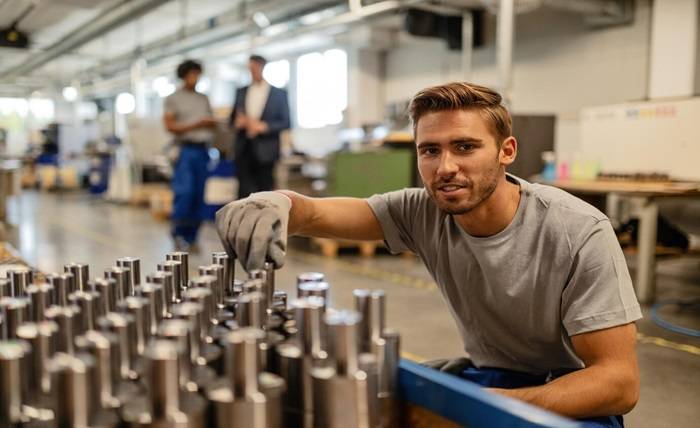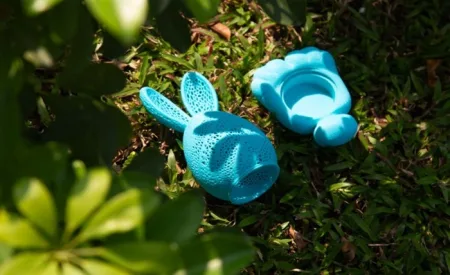Industries across the globe are reevaluating their processes to minimize their ecological footprint. Among these, the bolt and nut manufacturing sector is undergoing a significant transformation towards more eco-friendly practices.
Traditionally perceived as resource-intensive and polluting, fastener manufacturers are now embracing sustainability in innovative ways, revolutionizing their production processes for a greener future.
The Green Revolution in Fastener Manufacturing
Fasteners, including bolts and nuts, are vital components in numerous industries, from construction to automotive and aerospace.
Historically, the bolt and nut manufacturing processes for these essential components have been associated with significant environmental impacts, including high energy consumption, material waste, and pollution.
However, as awareness of environmental issues grows, fastener manufacturers are adopting sustainable practices to mitigate these adverse effects.
Key Eco-Friendly Initiatives
Material Selection and Recycling
One of the primary steps towards sustainable bolt and nut manufacturing is the careful selection of materials. By opting for recycled or sustainably sourced materials, manufacturers can reduce their reliance on virgin resources and minimize the environmental impact of extraction and processing. Additionally, implementing recycling programs for scrap metal generated during production further enhances sustainability by diverting waste from landfills and conserving valuable resources.
Energy Efficiency Measures
Energy-intensive bolt and nut manufacturing processes are a significant contributor to carbon emissions and environmental degradation. To address this challenge, fastener manufactures are investing in energy-efficient technologies and practices.
From optimizing machinery to utilizing renewable energy sources such as solar or wind power, these initiatives not only reduce carbon footprint but also lead to long-term cost savings.
Waste Reduction and Management
Minimizing waste generation is a key focus area for sustainable bolt and nut manufacturing. Through process optimization, lean manufacturing principles, and the implementation of closed-loop systems, manufacturers can significantly reduce waste production.
Furthermore, by repurposing or recycling waste materials whenever possible, such as excess metal shavings or packaging materials, companies can further enhance their environmental credentials.
Water Conservation
Water is a precious resource, and its efficient use is essential for sustainable bolt and nut manufacturing practices. Fastener manufacturers are implementing water conservation measures, such as recycling and reusing water in production processes, installing water-saving equipment, and implementing stringent water management protocols.
By minimizing water consumption and reducing wastewater discharge, these initiatives help preserve this vital resource and minimize environmental impact.
Benefits of Eco-Friendly Practices
The adoption of eco-friendly practices in bolt and nut manufacturing offers numerous benefits, both for the environment and the industry as a whole.
Environmental Impact Reduction
By reducing energy consumption, minimizing waste generation, and conserving resources, sustainable bolt and nut manufacturing practices significantly lower the environmental impact of bolt and nut production.
This translates to reduced carbon emissions, decreased pollution, and a smaller ecological footprint, contributing to global efforts to combat climate change and preserve natural ecosystems.
Cost Savings and Efficiency Gains
While the initial investment in sustainable technologies and practices may require upfront capital, the long-term benefits are substantial. Energy-efficient processes lead to lower operational costs, while waste reduction initiatives reduce material expenses and disposal costs.
Additionally, improved efficiency and productivity resulting from streamlined processes contribute to overall cost savings and enhanced competitiveness in the market.
Enhanced Reputation and Customer Loyalty
In today’s environmentally conscious marketplace, consumers and businesses alike prefer to engage with companies that demonstrate a commitment to sustainability.
By adopting eco-friendly practices, fastener manufacturers not only improve their reputation as responsible corporate citizens but also attract environmentally conscious customers and partners.
This fosters brand loyalty and enhances market positioning in an increasingly competitive industry landscape.
Conclusion
The transition towards eco-friendly practices in bolt and nut manufacturing represents a significant step towards a more sustainable future.
By prioritizing material efficiency, energy conservation, waste reduction, and water management, fastener manufacturers are not only minimizing their environmental impact but also reaping economic benefits and enhancing their reputation in the marketplace.
As these initiatives continue to gain momentum, the industry as a whole moves closer to achieving its sustainability goals while contributing to global efforts to safeguard the planet for future generations.



